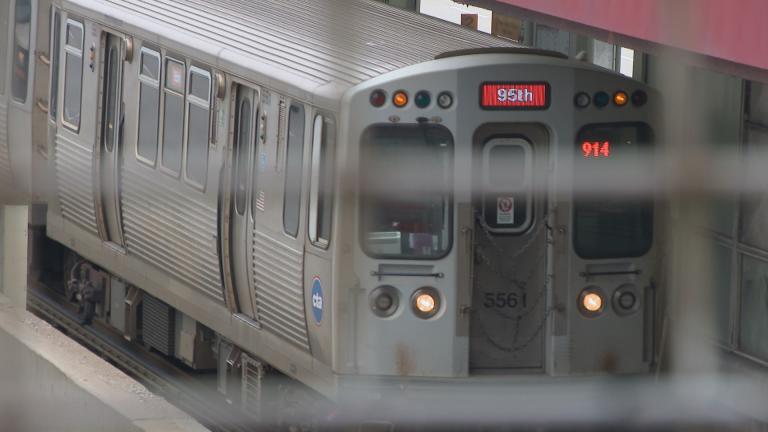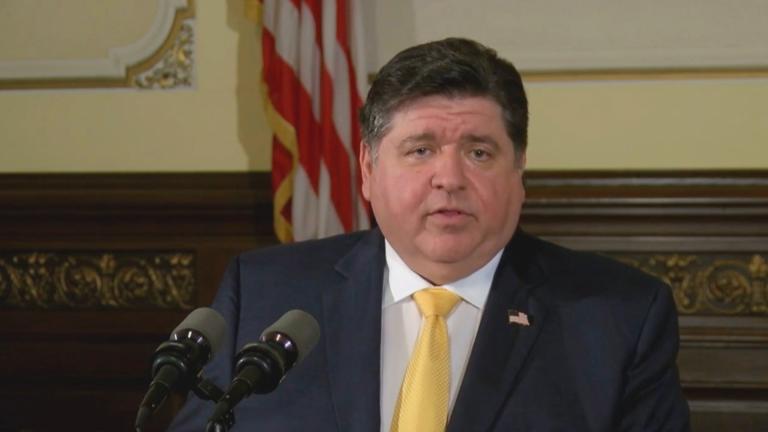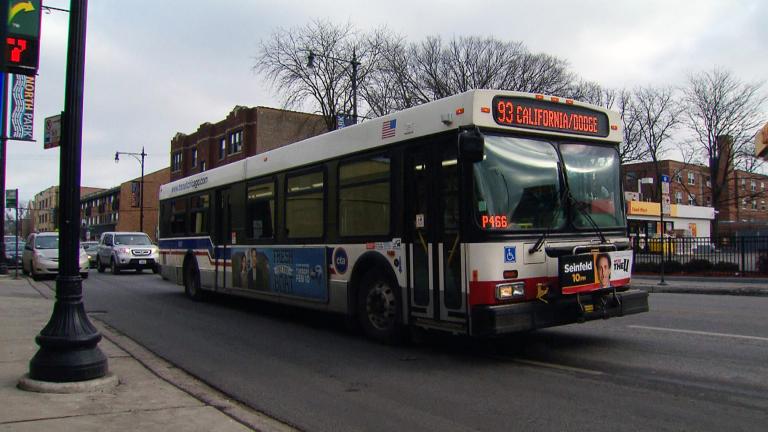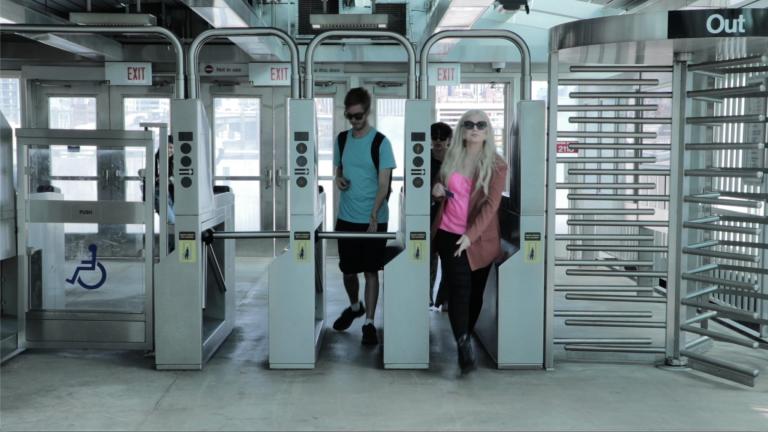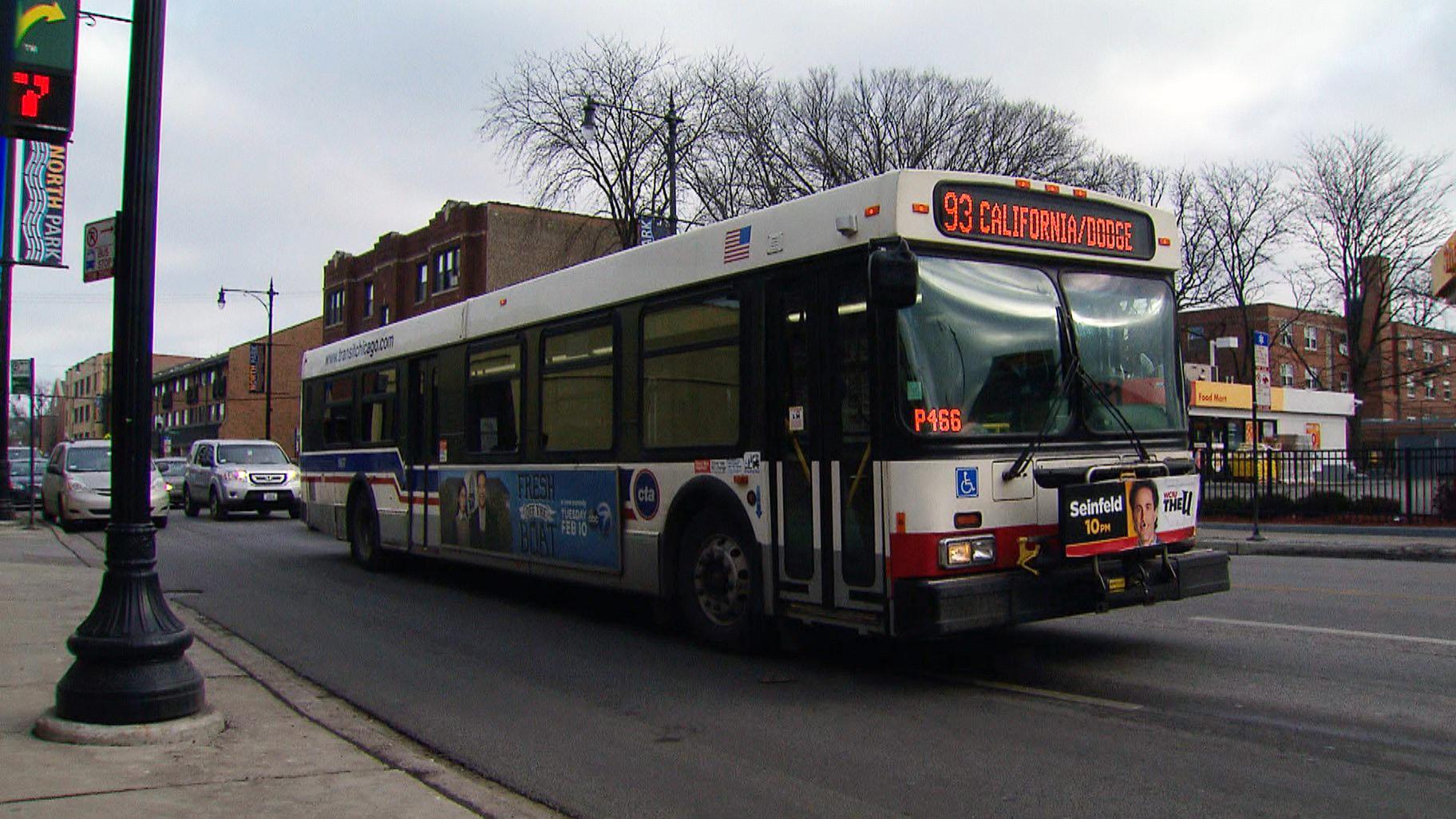 (WTTW News)
(WTTW News)
Failing to tackle a looming $730 million budget hole for CTA, Metra and Pace could have “potentially debilitating” effects on disinvested Chicago area communities that rely on transit – but boosting funding for public transportation without drastic governance reform would be a major failure, a new report says.
That finding comes from the nonprofit fiscal watchdog the Civic Federation in a just-released report that calls for the merger of the Chicago area’s three transit agencies.
“That fiscal crisis is of such magnitude that … it should be leveraged for consideration of the governance system,” said Civic Federation President Joe Ferguson. “It’s time that we actually elevate the system and we approach it from a truly regional perspective. The only way to really do that with efficacy, and the only way to really achieve efficiencies from a fiscal perspective, is to do it by means of consolidation.”
The pitch to merge the agencies is an endorsement of one reform option presented in the Plan of Action for Regional Transit, a comprehensive look at funding and operational challenges released by the Chicago Metropolitan Agency for Planning last December.
CMAP’s report is an urgent call for new funding to plug a deficit driven by still-sluggish ridership levels, expected to reach just 62% of their pre-pandemic peak this year.
That report also outlines two potential changes for oversight of bus and rail service. One would grant greater authority to the Regional Transportation Authority – which many advocates say lacks the muscle needed to improve service – but leave the three current transit boards in place.
The far bolder option that’s gotten the Civic Federation’s backing would consolidate the three agencies under RTA’s auspices in an effort to improve accountability, boost service coordination and delivery, and reduce administrative redundancies, saving up to $250 million annually by one consulting firm’s estimate.
The Civic Federation was among the stakeholders that helped craft the report, but hadn’t yet taken so public a stance on a merger. In its own analysis, the group now agrees that the merger would create huge savings and improve service across the region. And it acknowledges that bringing together three largely siloed transit systems could be expensive, politically difficult and create major complications for pension plans, union contracts and operating systems.
But Ferguson says merely boosting transit funding to prevent a budget catastrophe without overhauling how the systems are run would ultimately be a detriment to the region’s economy and the passengers who rely on buses and trains. He says once the fiscal cliff is no longer in sight, the impetus for change evaporates – and, that governance reforms could result in cost savings that would create a smaller budget hole to fill.
“It’s got to be governance first so we actually understand the true dimensions of the cliff and what needs to be done fiscally for the system as a whole,” said Ferguson. “Now is the moment, and these things have to go together.”
Transit leaders have been advocating for increased funding in Springfield, with CTA President Dorval Carter meeting with Illinois Speaker of the House Emanuel “Chris” Welch earlier this month to discuss the “looming fiscal cliff”. But Carter and his counterparts have urged caution when considering a merger.
“The complications of running our transit systems should not be understated,” Carter told the Daily Herald, with Metra Executive Director Jim Derwinski cautioning that a merger of three agencies with different operations and customer bases could create “unintended consequences”.
While CTA, Metra, Pace and the Civic Federation all contributed to the CMAP report, Ferguson says his organization hasn’t yet engaged deeply with the transit boards about its call for a merger. And given the challenges facing public transportation in the Chicago area, he says it’s time for a public conversation despite transit system leaders’ reticence.
“There is a fair amount of ownership of the moment that we are in that the people who lead the respective components of that system are going to be disinclined to actually make a full accounting of themselves,” Ferguson said. “It’s going to have to be driven by external turning up the heat, if you will, to say look, we’ve got problems, we have to talk about the problems, and the problems include governance.”
Ferguson said the impetus for this report was unrelated to ongoing calls to replace the CTA’s embattled leader Carter, which his group isn’t taking a stance on. He did say that governance reforms could lead to great accountability across the local transit landscape.
“Right now – and this is not to denigrate any individual person on any board or any board itself – but they operate in some respects more as sinecures,” he said. “Given all of the challenges of the CTA, as manifested in performance over a long period of time, the failure of the board to shift its thinking to one that is aggressively customer-service oriented … is one that almost inevitably gets improved by hitting a reset on the governance structure.”
Merging the three systems could also lead to suburban lawmakers and transit leaders advocating for more resources, raising concerns about the impact low-income communities and people of color who rely more heavily on the CTA to get around.
Ferguson said equity is a key consideration given the necessity of transit for many in the region and he argues that reforms can address unmet needs while improving current service.
“There are transit deserts right now, and we’re not meeting the needs of the people in those communities right now,” Ferguson said. “I get that this is the devil that you know, but we all agree that the devil that we know just isn’t doing us well, and will actually continue to put us as a larger community – and those places that already are underserved – at an even greater disadvantage the longer that we let it go on.”
Ferguson said his organization had hoped the transit funding crisis would be addressed in the current budget cycle – a hope that’s yet to materialize.
By endorsing wholesale reform to accompany a funding boost, the Civic Federation hopes to elevate the conversation in the remaining weeks of the General Assembly’s session and in the coming months leading up to the fall veto session.
“Somebody has to light the match,” Ferguson said. “There is this broad recognition that we actually have to address the governance issue, but somebody has to say it first. And so we’re doing that.”
Contact Nick Blumberg: [email protected] | (773) 509-5434 | @ndblumberg

